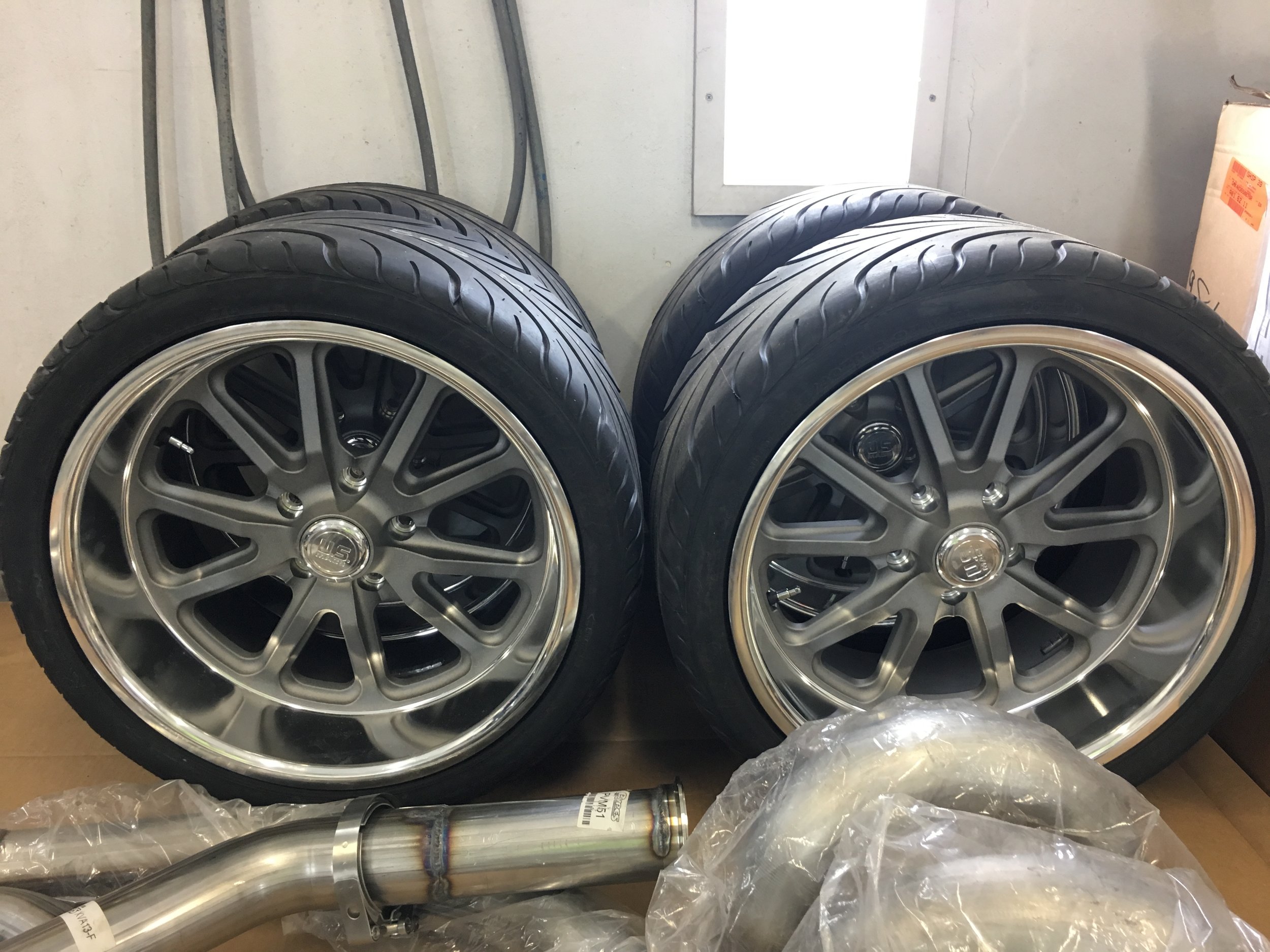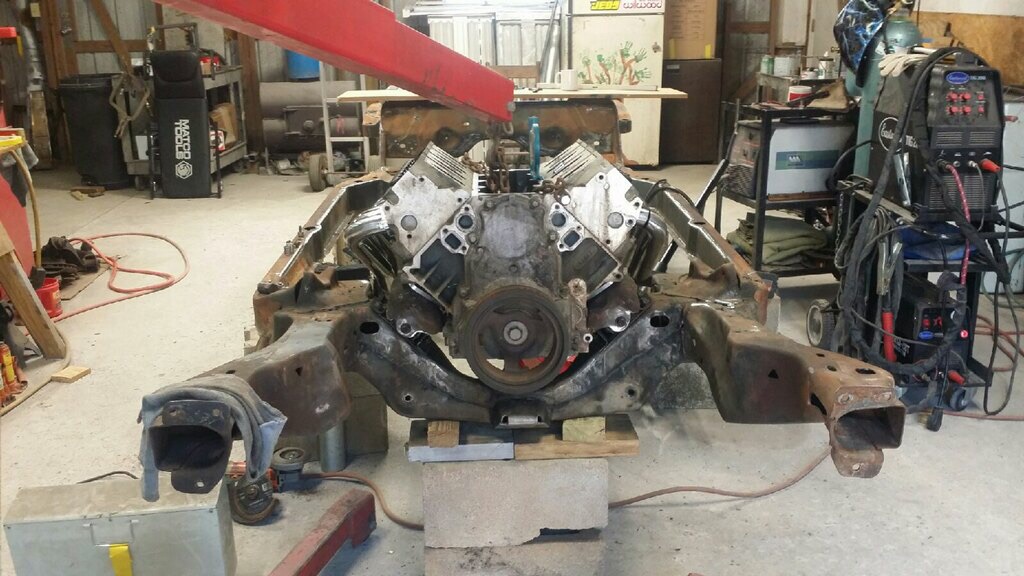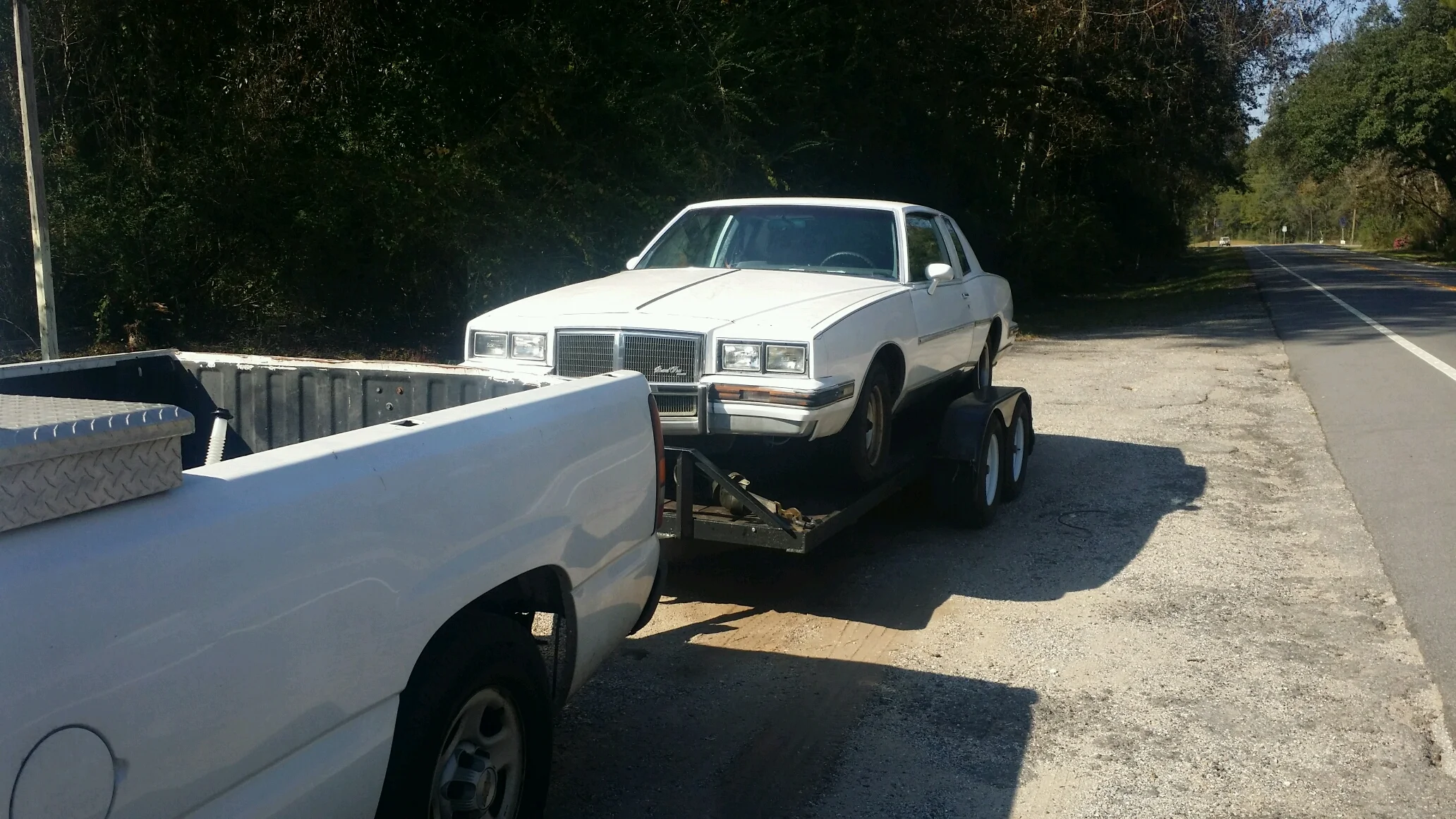Framework
When building or restoring any vehicle, it is best to start with the frame, the foundation. Everything on the car bolts to this centerpiece either directly or indirectly. Ensuring that it can handle what is in the car and the stress that you, as the driver, will put the car through.
One way to do this is install a roll cage. This will not only strengthen the car, but also protect the driver. For some that do not appreciate the lack of aesthetics that a roll cage provides, a second option is to strengthen the frame itself. One of the most common methods is to box in the center section of the frame. For a more solid ride, a boxed in frame down the center of the car is necessary. It will help prevent some twist through the center of the car and that was a must for this Grand Prix. A nice solid driving experience is what this car is going for. The side frame rails are reinforced with 3/16" plate steel formed to fit the contours of the frame and mig welded into place.
When the rear tires were fitted, they were too close to the frame. The rear side rails needed to be notched to fit the Federal RS-R 285/30/18 drift tires mounted on US Mags Rambler 18" x 9.5" wheels with a 1" offset. It may seem odd that drift tires are going on this car and it may seem more exciting, but the owner found a great deal on these tires through his work so he could not pass up purchasing them for this build. We all know they will not last long so new all season tires will be ready.
The frame was cut right on the factory weld seam and approximately 1" was cut out along most of the frame rail. More was removed as the width of the frame increases closer to the rear. 3/16" plate steel was used to fill the gaps with clean welding to follow through. The wheel/tire assembly clearance was checked using a ford 9" rear diff housing. With the added clearance, we may see some 10" slicks on this car in the future with some RC Components double beadlock wheels. This car is not expected to see that much power, but it never hurts to dream.














